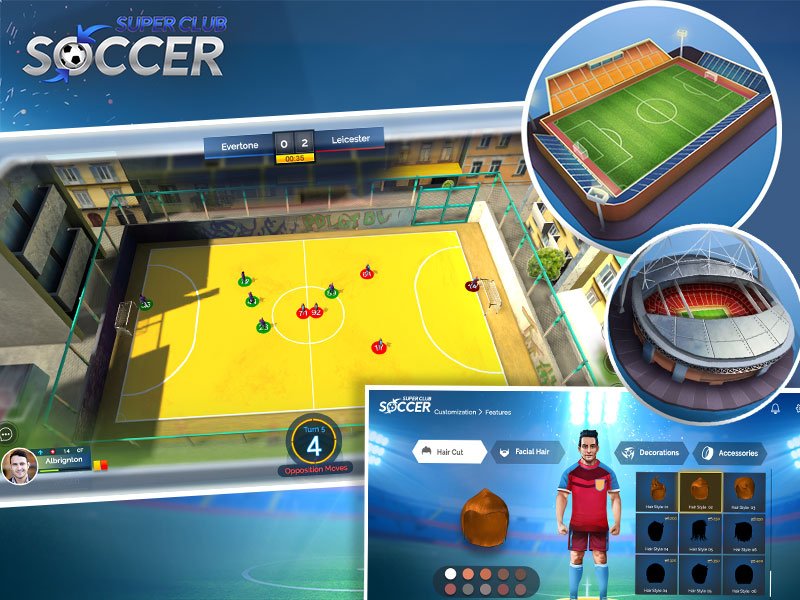Are you a game developer using Unity for your gaming projects? With the rise of cyber threats, protecting your games and ensuring their security is important. Knowing how to safeguard your game from hackers can help guard against malicious attacks and save you time, money, and headache in the long run. This article will provide tips on protecting your Unity game from hackers.
By taking a proactive approach to protecting your Unity game from hackers, you’ll be able to keep vital information safe while still allowing users to enjoy an engaging experience. So read on!
Understanding the Basics of Digital Security
When it comes to digital security, it is important to understand the basics. Digital security involves protecting data that is stored on computer systems and networks from unauthorized access or destruction. It also involves protecting individuals’ privacy and online safety when using the Internet.
To keep your digital information safe and secure, there are several best practices you should consider implementing. Most Unity3d game development services use cyber security to protect the game.
Best Practices for Securing your Unity Game
Below are ways to ensure your Unity game is as secure as possible.
a) Setting Up Secure Login Credentials
The first step in securing your Unity game is creating secure login credentials for players and administrators. You must choose a strong password containing at least 10 characters with uppercase and lowercase letters, numbers, and symbols. You should also avoid using personal information such as names or birthdays since this could make your account easier to guess. It’s also a good idea not to reuse the same password across multiple websites or applications.
If possible, it’s best practice to enable two-factor authentication (2FA) on your game accounts. This adds an extra layer of security, so even if someone manages to guess your username and password, they still won’t be able to access your account.
b) Implementing Encryption Techniques
Once you have chosen the encryption technique that best suits your needs, it’s time to start implementing the security measure. For symmetric algorithms, both parties must have and share the same secret key to securely exchange information. This is done manually by exchanging a shared key or using an automated process like Diffie-Hellman Key Exchange (DHKE).
c) Limiting Access to Data and Resources
Organizations must have a system to limit access to sensitive data and resources. This includes having an authentication system that requires passwords or multi-factor authentication (MFA) to access the data, assigning different levels of authorization for different users and limiting their access based on those levels. Organizations should also consider enforcing physical security measures such as card readers or biometrics to help control who can access certain areas.
Network segmentation is another key measure all organizations should implement, which helps protect more critical systems by isolating them from other network parts.
d) Utilizing Third-Party Firewalls and Anti-Virus Solutions
Third-party firewalls and anti-virus solutions are necessary for any organization to protect its data, systems, and networks from security threats. They offer advanced features to protect against intrusions, malware, and other malicious attacks. Additionally, these solutions can be used with network segmentation strategies such as VLANs or DMZs to restrict access further and reduce the attack surface of your system.
e) Regularly Monitoring Security Vulnerabilities
Regularly monitoring security vulnerabilities is also important, as it can help organizations identify potential weak points before they become fatal flaws. By regularly testing their system defenses, organizations can quickly detect and address any new or existing security issues they may have missed during their initial setup process.
f) Injection Detection
Injection detection helps to secure your Unity game from being hacked. It is a process of monitoring incoming traffic for malicious code or content, such as SQL injection attacks or cross-site scripting (XSS), that can be helpful for gaining access to confidential information. By analyzing the data for signs of malicious activity and then blocking it, injection detection helps stop hackers from compromising your game.
Several methods are available for implementing this type of security measure, including signature-based detection, anomaly-based detection and behaviour-based detection. Each method has its advantages and disadvantages, which should be considered when selecting an injection protection strategy. Additionally, you should ensure all traffic on your network is encrypted to further protect against possible hacking attempts.
g) Obfuscation
Obfuscation is making code difficult for humans to read and understand. This makes it hard for attackers to reverse engineer or tamper with the game code to gain access to your Unity game’s critical areas or sensitive data. By obfuscating the code, you can make your game more secure from hackers and malicious attacks. By getting help from a video game development company, you can ensure your game is obfuscated properly.
The Bottom Line
Protecting your Unity game from being hacked is crucial to a successful and sustainable game. Following the steps of this guide, you can successfully protect your game from malicious attacks and enjoy a secure gaming experience. Taking the time to implement security measures now properly will save you countless headaches later down the line.
So make sure to take extra care when developing and updating your game – ensure that you have strong authentication protocols, timely updates, and reliable backups to keep your players safe.

